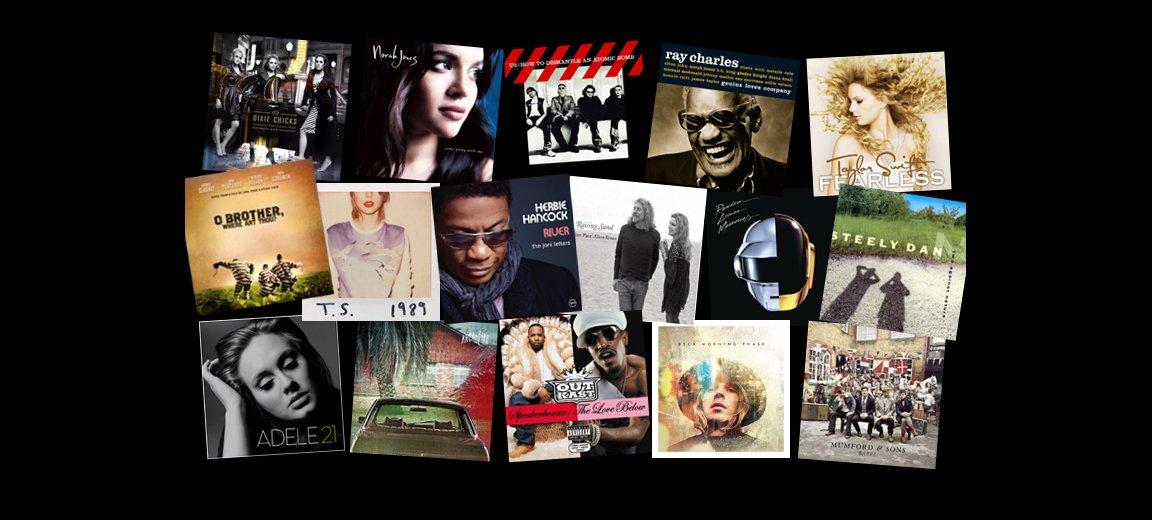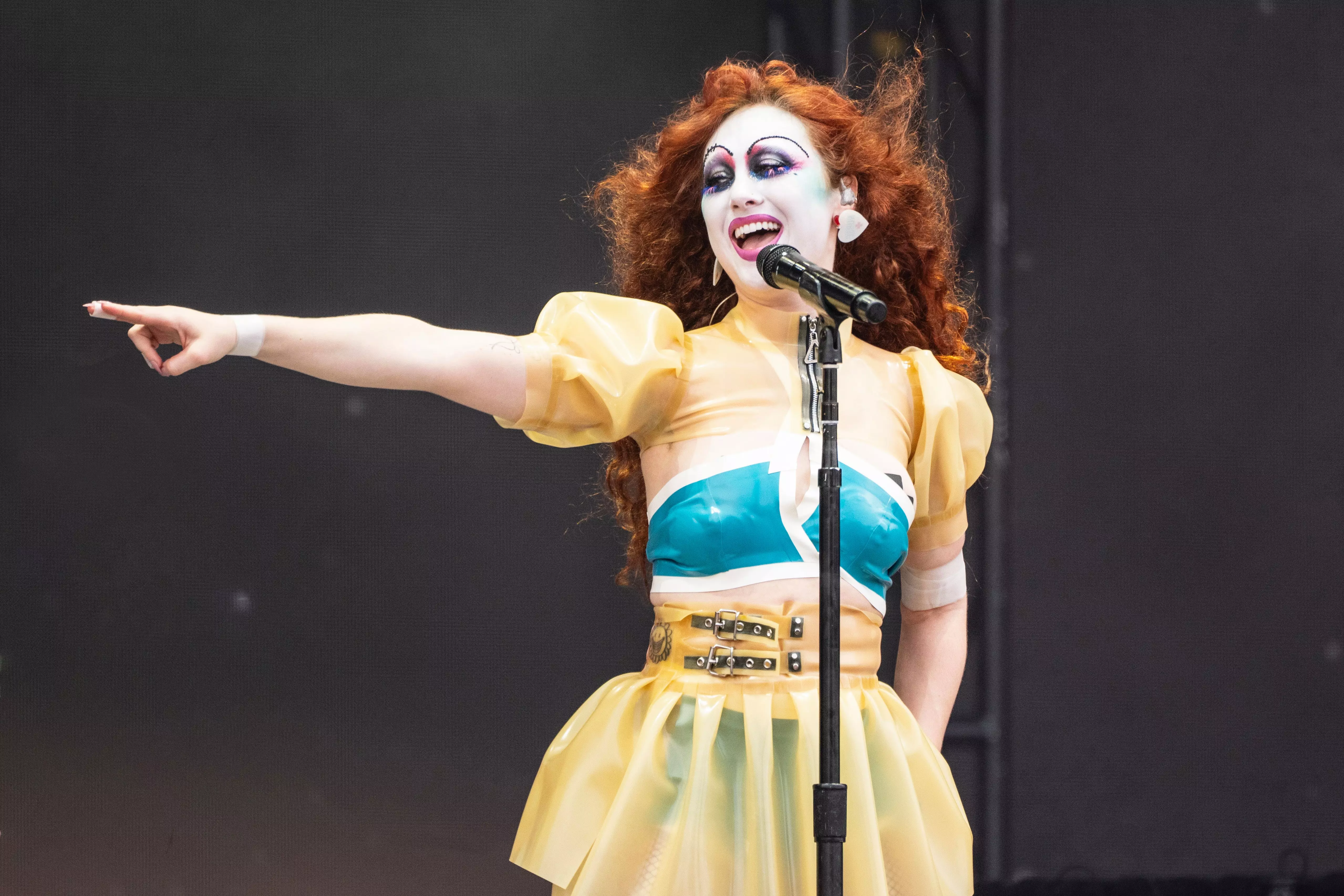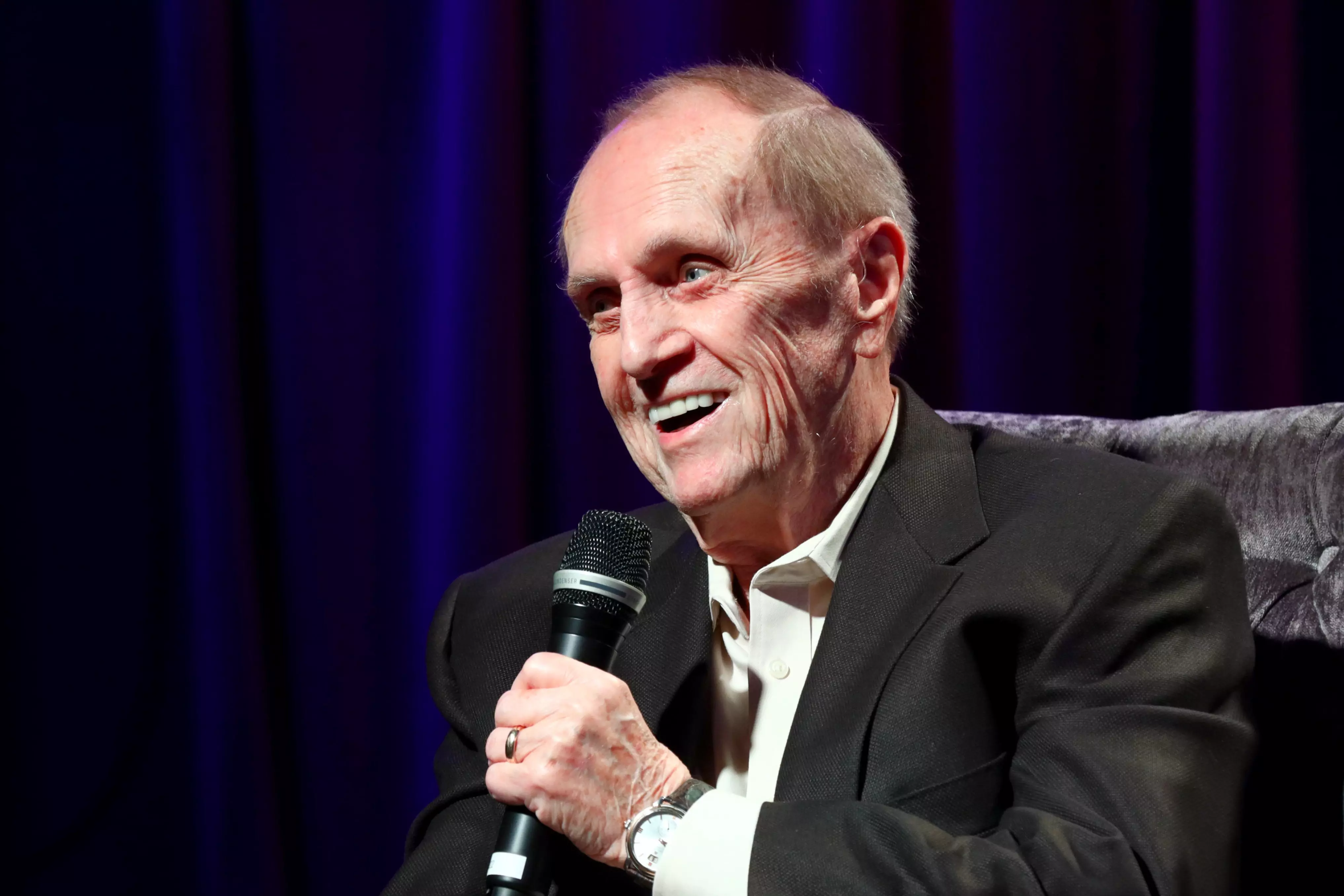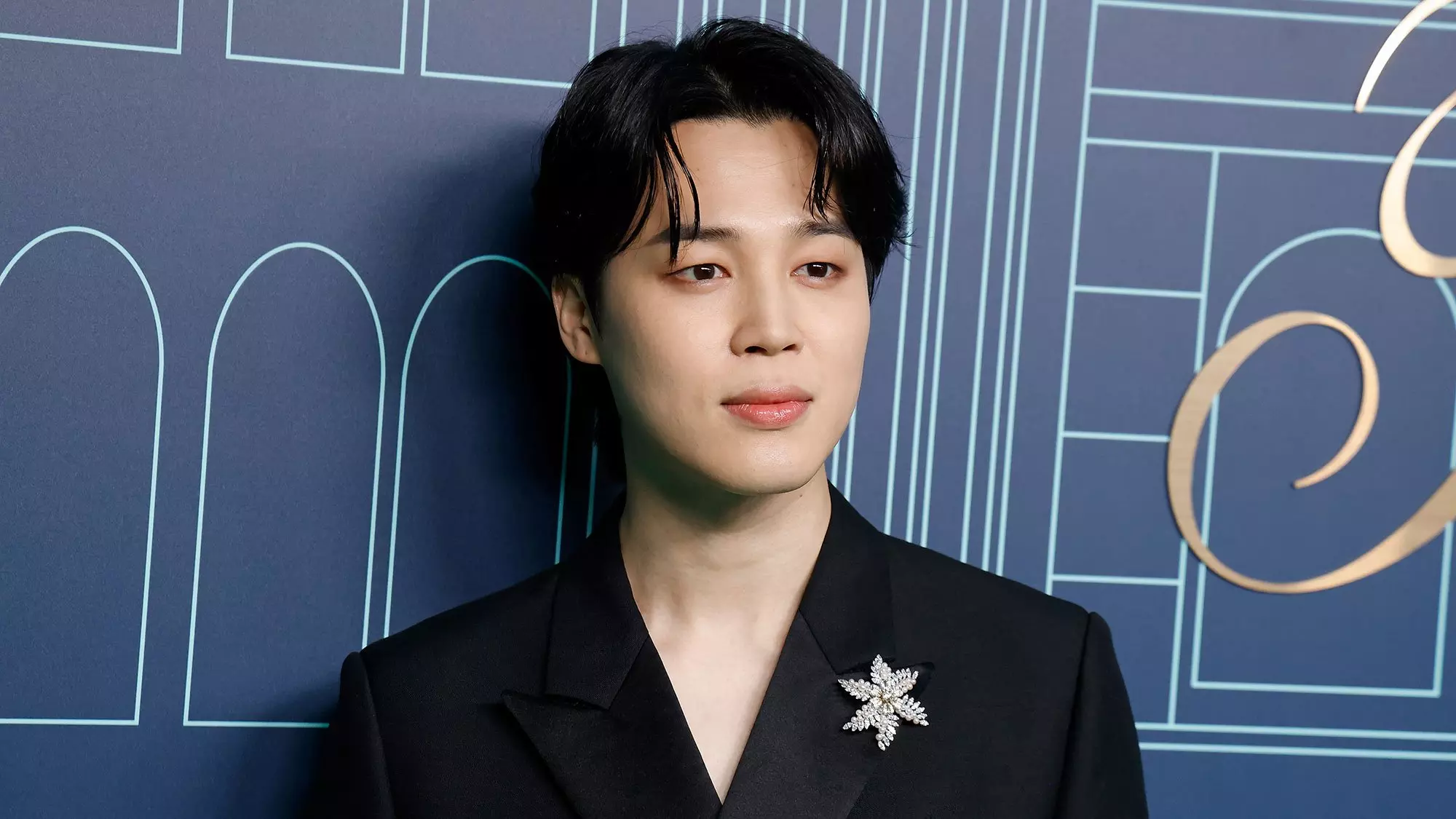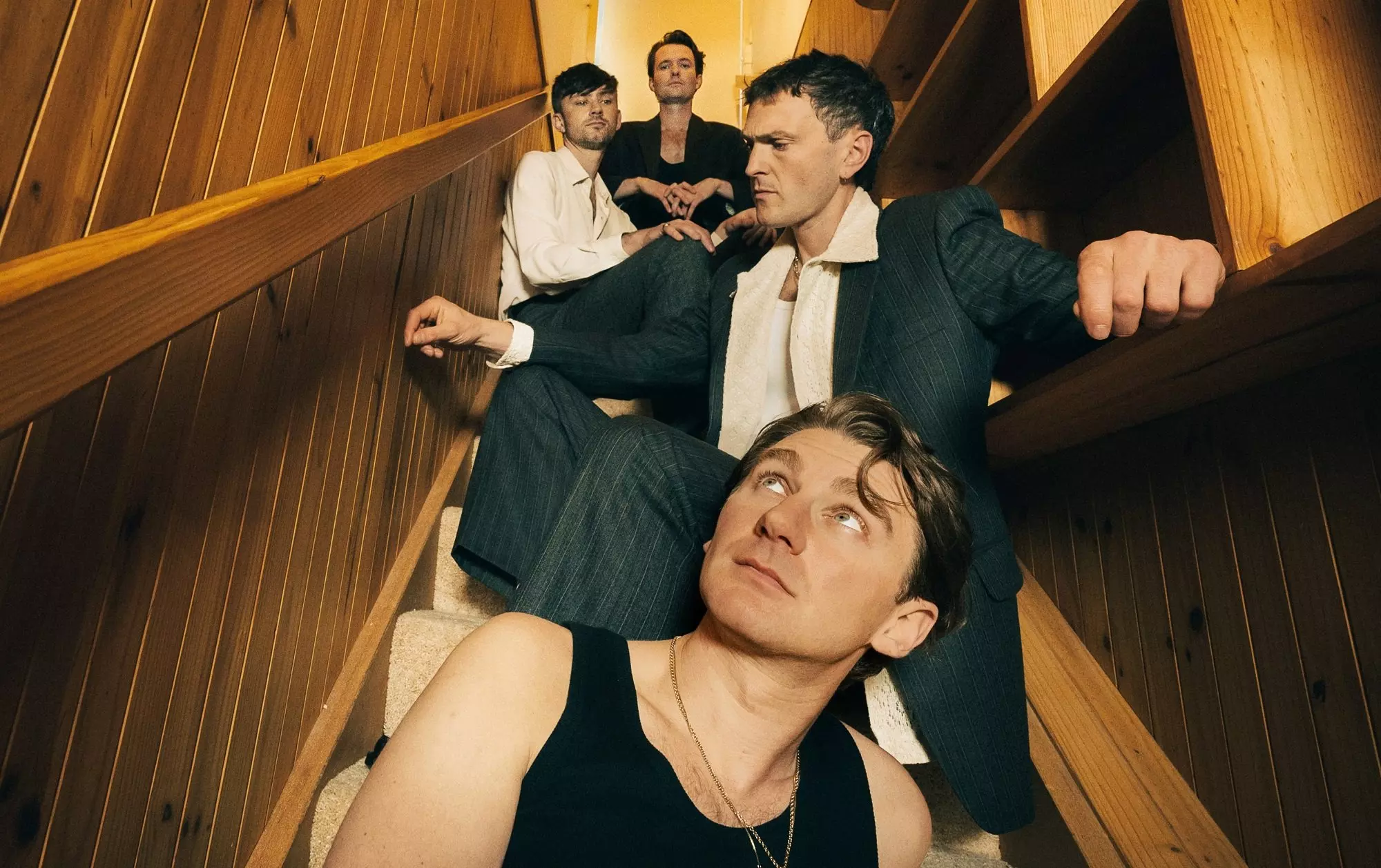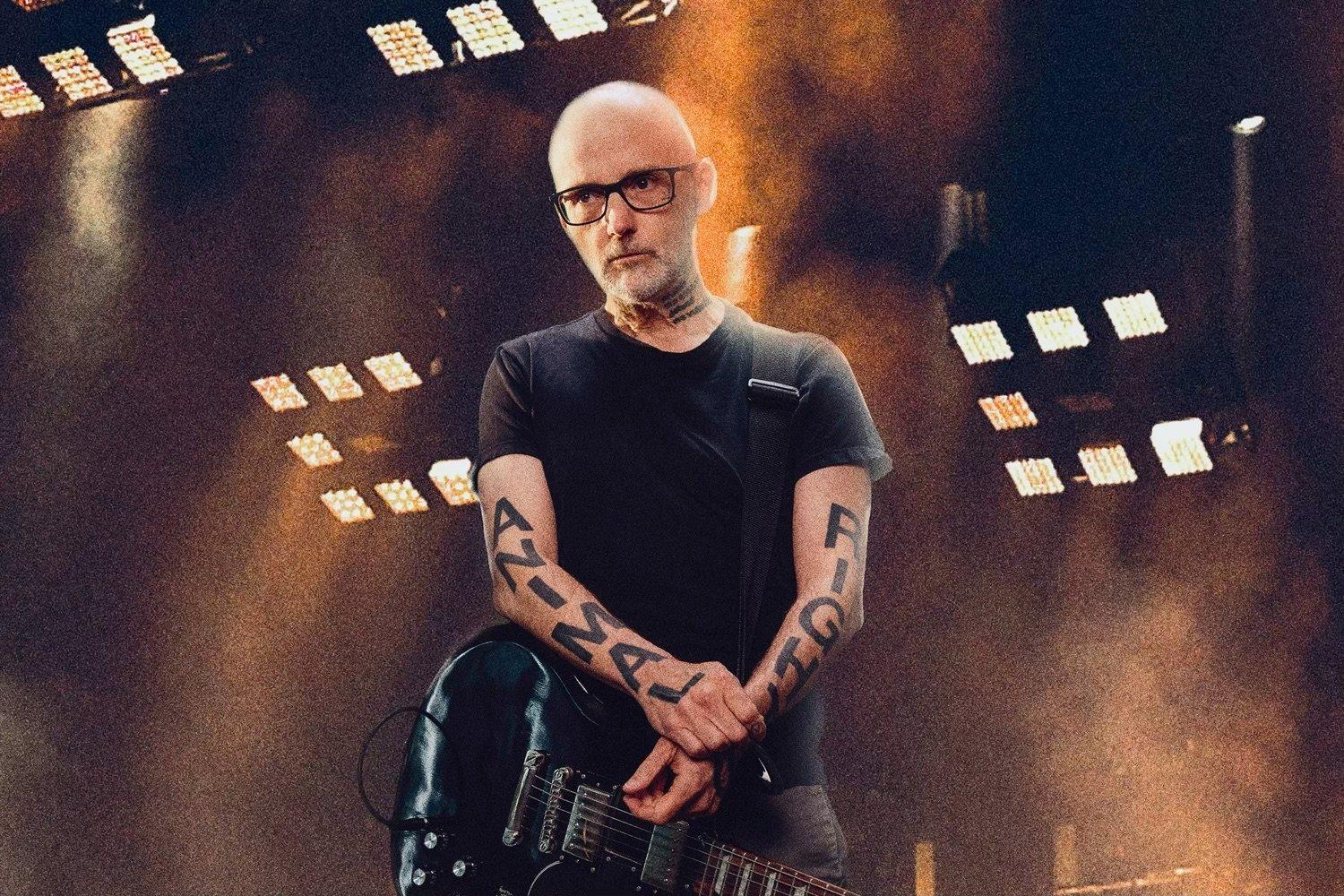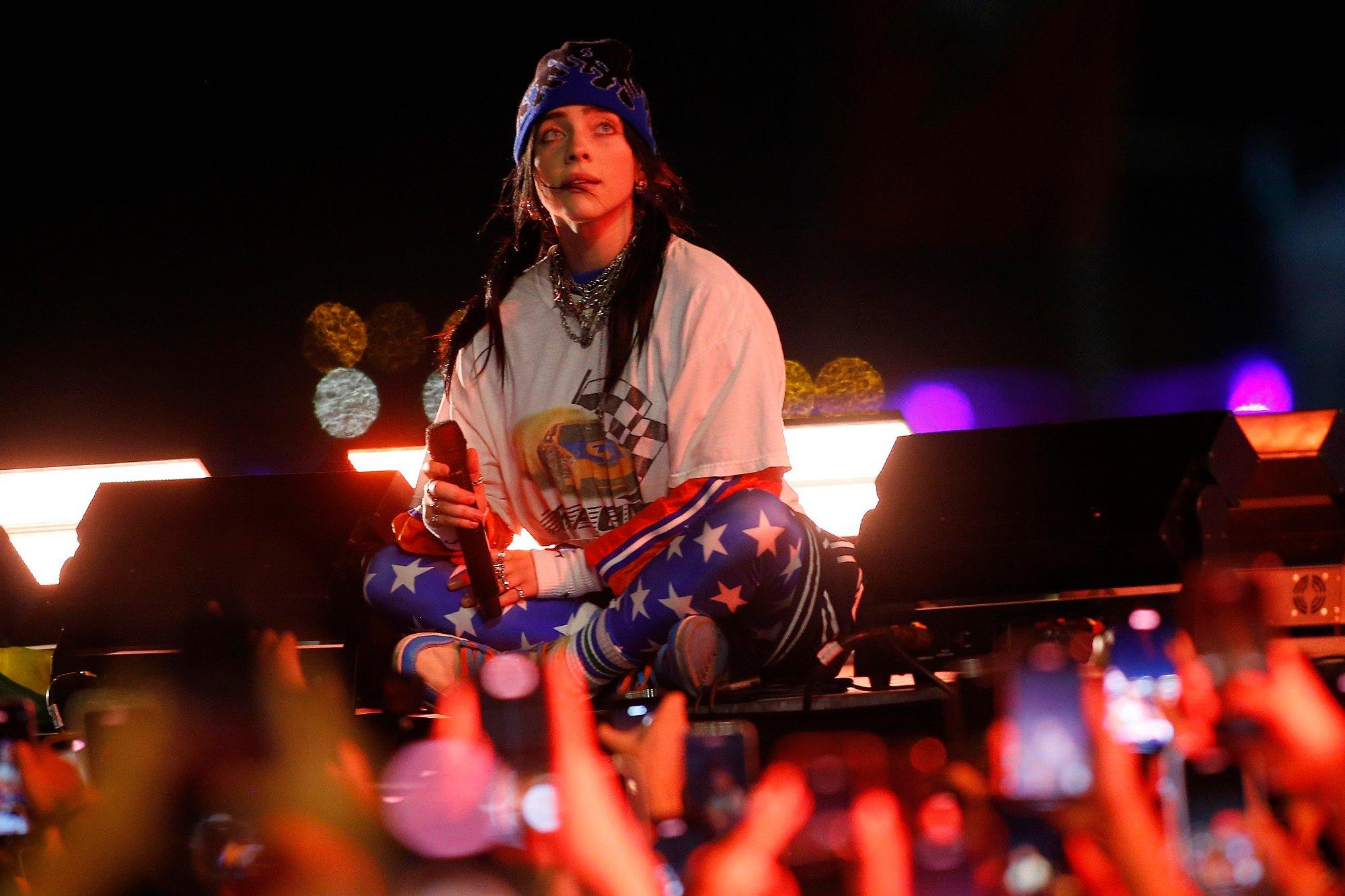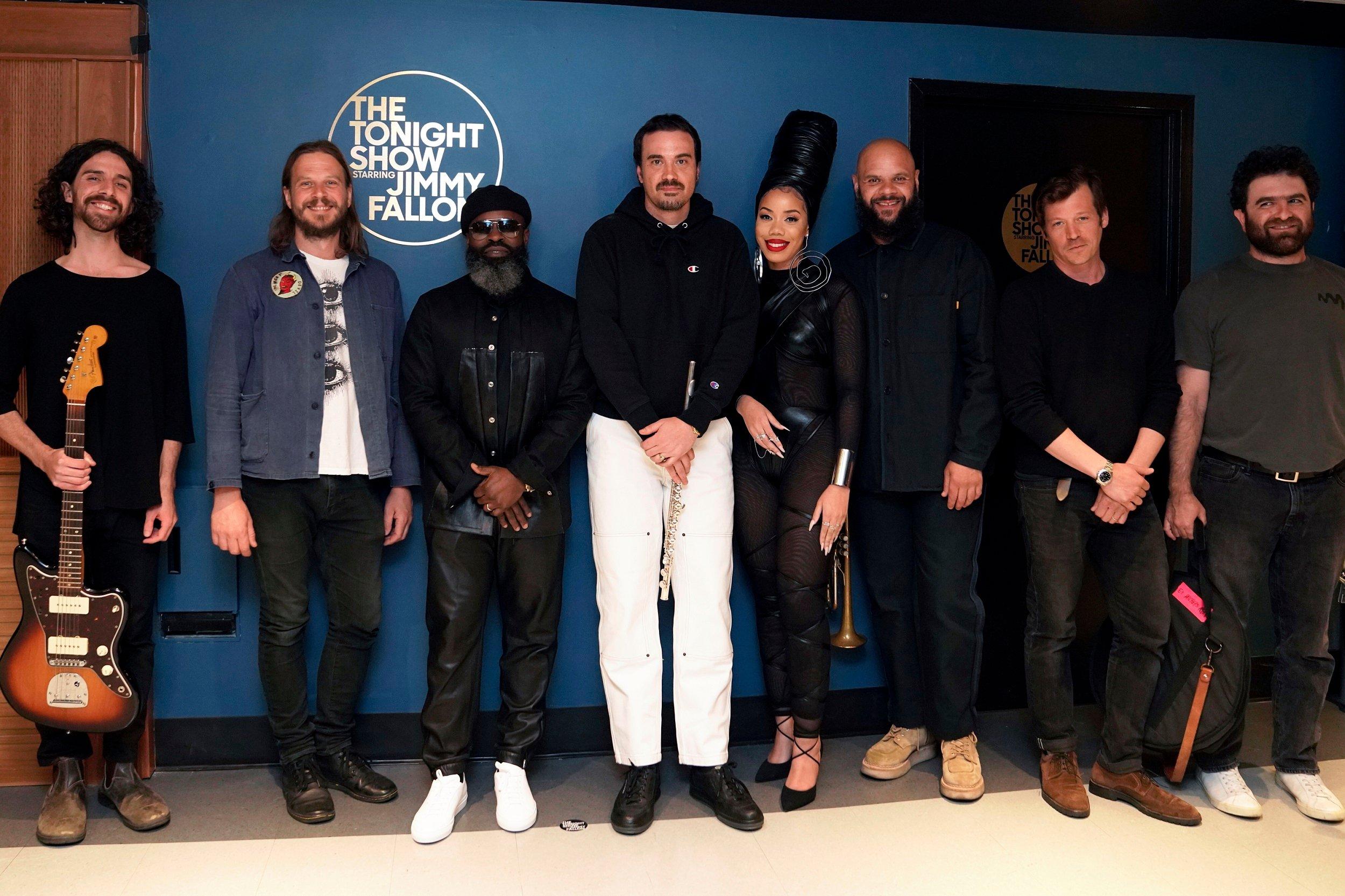An incalculable number of albums have been released in music history, but only 58 have earned the coveted distinction of Album Of The Year GRAMMY winner so far. From Henry Mancini's The Music From Peter Gunn to Taylor Swift's 1989, some of these elite albums have arguably surprised, some were seemingly consensus choices and still others have fostered lasting debate. In part five of Album Of The Year GRAMMY Winners, explore the albums that won — and were runners-up for — music's biggest prize for 2000–2015.
2000 ALBUM OF THE YEAR
Two Against Nature
Steely Dan
Almost 30 years after their debut Can't Buy A Thrill (and 20 years after their last studio recording, Gaucho) Walter Becker and Donald Fagen returned to the spotlight with Two Against Nature. The pair went on an extended hiatus after Gaucho until Becker produced Fagen's 1993 effort, Kamikiriad. This project led to an unexpected tour together, which ultimately sparked a full-fledged collaboration on Two Against Nature. Heady, jazzy, sleek, and lyrically sardonic, it's Steely Dan at their meticulous best. Up against the odds-on favorite in Eminem's controversial The Marshall Mathers LP — and one of the more ambitious alternative releases in years, Radiohead's Kid A — Two Against Nature won out for 2000, proving you can go back to your old school and still make the top grade.
Other Nominees:
Midnite Vultures, Beck
The Marshall Mathers LP, Eminem
Kid A, Radiohead
You're The One, Paul Simon
2001 ALBUM OF THE YEAR
O Brother, Where Art Thou? — Motion Picture Soundtrack
Various Artists
In a high-profile nod to traditional music, the soundtrack for Ethan and Joel Coen's quirky Depression-era movie O Brother, Where Art Thou? was awarded Album Of The Year for 2001. Producer T Bone Burnett crafted an authentic soundscape rich with gospel, bluegrass, folk, and blues music and a stellar cast of artists, including Emmylou Harris, Gillian Welch, Alison Krauss, and the Fairfield Four. "I Am A Man Of Constant Sorrow" by the Soggy Bottom Boys (aka Union Station's Dan Tyminski, songwriter Harley Allen and Pat Enright of the Nashville Bluegrass Band) is not only a highlight of the album, but it plays a pivotal role in the movie. Bluegrass legend Ralph Stanley, at the age of 75, brought home his first two GRAMMYs ever, including Best Male Country Vocal Performance for a truly bone-chilling version of "O Death."
Other Nominees:
Love And Theft, Bob Dylan
Acoustic Soul, India.Arie
Stankonia, OutKast
All That You Can't Leave Behind, U2
2002 ALBUM OF THE YEAR
Come Away With Me
Norah Jones
After dropping out of college in the late '90s, Norah Jones spent time finding herself and honing her sound on the lounge/coffeehouse scene in New York City. But her profile would drastically change in 2002. A sultry combination of pop, soft-soul, jazz, and country, Jones' debut Come Away With Me won four GRAMMYs and she took home the coveted Best New Artist award. Produced by Arif Mardin, the album pairs Jones with a slew of jazz musicians, including Bill Frisell, Tony Scherr and Brian Blade — which made sense considering she spent time recording and playing live with jazz guitarist Charlie Hunter the previous year. Other collaborators on the album include Jesse Harris and Lee Alexander, friends from her New York underground days. In fact, it was Harris who penned "Don't Know Why," Jones' breakthrough GRAMMY-winning single.
Other Nominees:
Home, Dixie Chicks
The Eminem Show, Eminem
Nellyville, Nelly
The Rising, Bruce Springsteen
2003 ALBUM OF THE YEAR
Speakerboxxx/The Love Below
OutKast
André Benjamin and Antwan Patton — better known as André 3000 and Big Boi — spent almost 10 years working together in their hometown of Atlanta before breaking big with their fourth release, Stankonia (named Best Rap Album for 2001). But it was the eclectic, imaginative double-disc Speakerboxxx/The Love Below that placed them, and the distinctive strains of Southern hip-hop, in the coveted Album Of The Year spotlight. The album is creatively split: Big Boi's songs are on Speakerboxxx, while André 3000's are featured on The Love Below. The former is more hard-driving; the latter a more eccentric brand of psychedelic hip-hop. Still, each had more than its share of exceptional moments: "Hey Ya!" (from The Love Below) and "The Way You Move" (from Speakerboxxx) were two of the most pervasive, infectious hits of the year.
Other Nominees:
Under Construction, Missy Elliott
Fallen, Evanescence
Justified, Justin Timberlake
Elephant, the White Stripes
2004 ALBUM OF THE YEAR
Genius Loves Company
Ray Charles & Various Artists
Genius Loves Company was a classy project featuring Ray Charles duetting with various guests such as Bonnie Raitt, Norah Jones, Diana Krall, B.B. King, and James Taylor. The material was just as diverse, ranging from "Sorry Seems To Be The Hardest Word" with Elton John to the Frank Sinatra standard "It Was A Very Good Year" with Willie Nelson. Beyond being remembered as the final recording from an iconic legend, Genius Loves Company holds another distinction: It was one of the first albums of original music released on Hear Music (in partnership with Concord Records) after being acquired by the Starbucks Corporation. The album's profile was greatly enhanced through exposure in Starbucks outlets around the world and its noteworthy success marked an eye-opening change in the way music was marketed at the time.
Other Nominees:
American Idiot, Green Day
The Diary Of Alicia Keys, Alicia Keys
Confessions, Usher
The College Dropout, Kanye West
2005 ALBUM OF THE YEAR
How To Dismantle An Atomic Bomb
U2
Much like their 2000 release, All That You Can't Leave Behind, on How To Dismantle An Atomic Bomb U2 mined an even rootsier, stripped-down rock approach. And there's a reason why the Irish lads' first collection of post-Sept. 11 work reverberated so deeply with listeners: More than ever, topics of peace ("City Of Blinding Lights"), love ("A Man And A Woman"), death ("Sometimes You Can't Make It On Your Own"), and the divine ("Yahweh") seemed more relevant and comforting than any salve offered by political leaders or Sunday morning sermons. Including three 2004 GRAMMYs for the album's first single "Vertigo," How To … was graced with a total of eight GRAMMYs.
Other Nominees:
The Emancipation Of Mimi, Mariah Carey
Chaos And Creation In The Backyard, Paul McCartney
Love.Angel.Music.Baby., Gwen Stefani
Late Registration, Kanye West
2006 ALBUM OF THE YEAR
Taking The Long Way
Dixie Chicks
In 2003 the outspoken Dixie Chicks stood their ground after fans and country radio stations reacted negatively to lead singer Natalie Maines' comments in opposition of the Iraq War and President George W. Bush. If anything, it spurred the band to dig their high heels in even deeper. Some of the most stirring lyrics on their subsequent album ("It's a sad, sad story when a mother will teach her daughter that she ought to hate a perfect stranger" from "Not Ready To Make Nice") were a steely response to a threatening letter the band received in the wake of Maines' political comments. The Rick Rubin-produced album, which won a clean sweep of all five awards it was nominated for, features the rock and roots contributions of Gary Louris, Benmont Tench, John Mayer, Keb' Mo', Sheryl Crow, and Linda Perry.
Other Nominees:
St. Elsewhere, Gnarls Barkley
Continuum, John Mayer
Stadium Arcadium, Red Hot Chili Peppers
FutureSex/LoveSounds, Justin Timberlake
2007 ALBUM OF THE YEAR
River: The Joni Letters
Herbie Hancock
Only two other jazz artists (Stan Getz and João Gilberto for their 1964 self-titled album) have managed to garner the Album Of The Year GRAMMY. But in gracefully connecting jazz with pop, R&B and folk, Herbie Hancock did just that with River: The Joni Letters, an elegant homage to longtime creative collaborator and eight-time GRAMMY-winning songstress Joni Mitchell. Partnering with relative new schoolers such as Corinne Bailey Rae, Norah Jones and Luciana Souza, as well as legends including Leonard Cohen and Tina Turner, Hancock crafted fitting interpretations of some of Mitchell's most moving songs, including "Court And Spark," "River," "Both Sides Now," and "The Tea Leaf Prophecy." The album — backed by the stellar lineup of guitarist Lionel Loueke, drummer Vinnie Colaiuta, saxophonist Wayne Shorter, and bassist Dave Holland — is not only an imaginative tribute to Mitchell, it is yet another artistic milestone in Hancock's vibrant career.
Other Nominees
Echoes, Silence, Patience & Grace, Foo Fighters
These Days, Vince Gill
Graduation, Kanye West
Back To Black, Amy Winehouse
2008 ALBUM OF THE YEAR
Raising Sand
Robert Plant & Alison Krauss
At first glance, Alison Krauss and Robert Plant seemed an unlikely duo, but their musical résumé made them a formidable pair. By the time they linked for 2007's Raising Sand, Krauss had already earned 21 GRAMMYs, the most by a female artist, while Plant's career included platinum records, a 2005 Recording Academy Lifetime Achievement Award and induction into the Rock and Roll Hall of Fame with Led Zeppelin. Add acclaimed producer T Bone Burnett to the mix and Raising Sand was bound to be a hit. The album spans blues, folk, country, and pop with "Rich Woman," and the Everly Brothers' "Gone Gone Gone (Done Moved On)" winning Best Pop Collaboration With Vocals. Raising Sand netted five GRAMMYs, including Record Of The Year for "Please Read The Letter," proving that a rock god and bluegrass queen can create sweet harmony.
Other Nominees:
Viva La Vida Or Death And All His Friends, Coldplay
Tha Carter III, Lil Wayne
Year Of The Gentleman, Ne-Yo
In Rainbows, Radiohead
2009 ALBUM OF THE YEAR
Fearless
Taylor Swift
If the sophomore jinx is real, Taylor Swift knows nothing about it. Her second album, 2008's Fearless, generated eight GRAMMY nominations and was the best-selling album of 2009 in the U.S. On her first collection as an adult, Swift sounds like a woman beyond her years with songs such as "Fifteen" ("I wish you could go back and tell yourself what you know now") and the GRAMMY-winning "White Horse" ("I'm not a princess, this ain't a fairy tale"). She wrote or co-wrote every track on the album, including her first Top 5 crossover hit, "Love Story." Though the album won an additional three GRAMMYs in the Country Field, including Best Country Album, the power ballad "Breathe" (with Colbie Caillat) and yearning "You Belong With Me" foretold the pop sounds of subsequent Swift offerings.
Other Nominees:
I Am … Sasha Fierce, Beyoncé
The End, the Black Eyed Peas
Big Whiskey And The Groogrux King, Dave Matthews Band
The Fame, Lady Gaga
2010 ALBUM OF THE YEAR
The Suburbs
Arcade Fire
Upon accepting Arcade Fire's GRAMMY for Album Of The Year, Win Butler incredulously asked, "What the hell?" The indie rockers had just triumphed over pop stars Lady Gaga and Katy Perry, Lady Antebellum's country smash Need You Now, and Eminem's Recovery, which it previously pushed out of the No. 1 spot on the Billboard 200. Despite Butler's surprise, fans had taken to the band's brand of alt-rock, which was steered by Butler and his wife Régine Chassagne, brother William Butler, and Richard Reed Parry on vocals in addition to a multitude of instruments. Drummer Jeremy Gara, bassist Tim Kingsbury and violinist Sarah Neufeld also contributed. Together they created a sound Win Butler described as "a mix of Depeche Mode and Neil Young." Standout tracks such as "Month Of May" and "Ready To Start," which they performed on the 53rd GRAMMY Awards, helped the group earn their sole GRAMMY win to date.
Other Nominees:
Recovery, Eminem
Need You Now, Lady Antebellum
The Fame Monster, Lady Gaga
Teenage Dream, Katy Perry
2011 ALBUM OF THE YEAR
21
Adele
After Adele's 2008 debut album, 19 (recorded when she was 19), earned her two GRAMMYs, including Best New Artist, the British singer's sophomore album had some big shoes to fill. 21 (recorded when she was 21) continued the themes of her first album: There was scorn (Record Of The Year-winning "Rolling In The Deep"), mourning ("Someone Like You" and "Set Fire To The Rain"), love ("One And Only" and "Lovesong" produced by Rick Rubin), and her trademark wittiness ("Rumour Has It" co-written by Ryan Tedder). The smash album firmly rooted Adele's place in music and GRAMMY history — 21 was the best-selling album in the United States in 2011 and "Someone Like You" became the first-ever No. 1 on the Billboard Hot 100 to feature solely voice and piano. She won six awards at the 54th GRAMMY Awards, matching Beyoncé's record for the most GRAMMYs won in one night by a female artist and Eric Clapton's record for most GRAMMYs won in one night by a British artist.
Other Nominees:
Wasting Light, Foo Fighters
Born This Way, Lady Gaga
Doo-Wops & Hooligans, Bruno Mars
Loud, Rihanna
2012 ALBUM OF THE YEAR
Babel
Mumford & Sons
If Mumford & Sons' mantra while recording Babel happened to be "if it ain't broke, don't fix it," who could blame them? Their debut album Sigh No More garnered them a Best New Artist nomination and a nod for Record Of The Year for their first Top 30 hit "The Cave." For Babel, the band — comprising multi-instrumentalists Ted Dwane, Ben Lovett, Winston Marshall, and Marcus Mumford — reteamed with GRAMMY-winning producer Markus Dravs, who produced Sigh No More and previously scored an Album Of The Year GRAMMY as co-producer for Arcade Fire's The Suburbs. The folksy sound of their debut carried over onto Babel, especially on the album's breakthrough hits "I Will Wait" and "Lover Of The Light." With their double bass, banjo, mandolin, and resonator guitar, the quartet spun a spirited and soulful tale, earning their first No. 1 album, among other accolades.
Other Nominees:
El Camino, the Black Keys
Some Nights, Fun.
Channel Orange, Frank Ocean
Blunderbuss, Jack White
2013 ALBUM OF THE YEAR
Random Access Memories
Daft Punk
French duo Daft Punk (Thomas Bangalter and Guy-Manuel de Homem-Christo) came onto the house music scene with their 1997 debut, Homework. At the 56th GRAMMY Awards, however, the pair took their star status to the next level when they collected four awards for Random Access Memories, including Best Dance/Electronica Album and Record Of The Year for "Get Lucky" (with Pharrell Williams on vocals and Nile Rodgers on guitar). The enigmatic robots went all out on Random Access Memories, tapping not only Williams and Rodgers, but disco legend Giorgio Moroder ("Giorgio By Moroder") and songwriter Paul Williams ("Touch" and "Beyond"). The album features extensive live instrumentation, including Rodgers' funky guitar ("Lose Yourself To Dance") and beats created with drumsticks instead of loops ("Contact"), warming up the album's electronic backbone.
Other Nominees:
The Blessed Unrest, Sara Bareilles
Good Kid, M.A.A.D City, Kendrick Lamar
The Heist, Macklemore & Ryan Lewis
Red, Taylor Swift
2014 ALBUM OF THE YEAR
Morning Phase
Beck
Morning Phase came as a delayed follow-up to Beck's 2002 heartbreak-inspired Sea Change. The album is an acoustic tour de force of melancholy, perhaps inspired by the severe back injury Beck suffered in 2005. Beck's poetry and folk-rock mastery reach from "Morning" ("Looked up this morning, saw the roses full of thorns") to "Heart Is A Drum" ("Why does it hurt this way, to come so far to find they've closed the gates"). The album earned four 57th GRAMMY nominations, including Best Rock Song and Best Rock Performance for the ode to loneliness, "Blue Moon," and won for Best Rock Album. Beck's triumph wasn't without a little controversy: Kanye West jokingly stormed the stage before Beck's acceptance speech. The amiable Beck took it in stride, inviting West to come back and "help" before finishing his thank yous.
Other Nominees:
Beyoncé, Beyoncé
X, Ed Sheeran
In The Lonely Hour, Sam Smith
Girl, Pharrell Williams
2015 ALBUM OF THE YEAR
1989
Taylor Swift
Despite being born in 1989, 2015 was a very good year for Taylor Swift. Released in late 2014, Swift's fifth studio album, 1989, saw the singer/songwriter release an all-pop collection co-produced with GRAMMY winner Max Martin. The album yielded two No. 1 singles, "Shake It Off" and "Blank Space" — the latter her witty response to the media's obsession with her love life — and peaked at No. 1 in more than 10 countries. Inarguably a successful crossover to pop, 1989 garnered seven 58th GRAMMY nominations. At the end of the night, Swift took home three statues, including Best Music Video for her star-studded "Bad Blood" video in collaboration with fellow GRAMMY winner Kendrick Lamar. Notably, Swift's win earned her the distinction of being the first female solo artist to win Album Of The Year twice, an achievement Swift punctuated in her acceptance speech.
Other Nominees:
Sound & Color, Alabama Shakes
Really Love, D'Angelo And The Vanguard
To Pimp A Butterfly, Kendrick Lamar
Traveller, Chris Stapleton
Beauty Behind The Madness, The Weeknd

